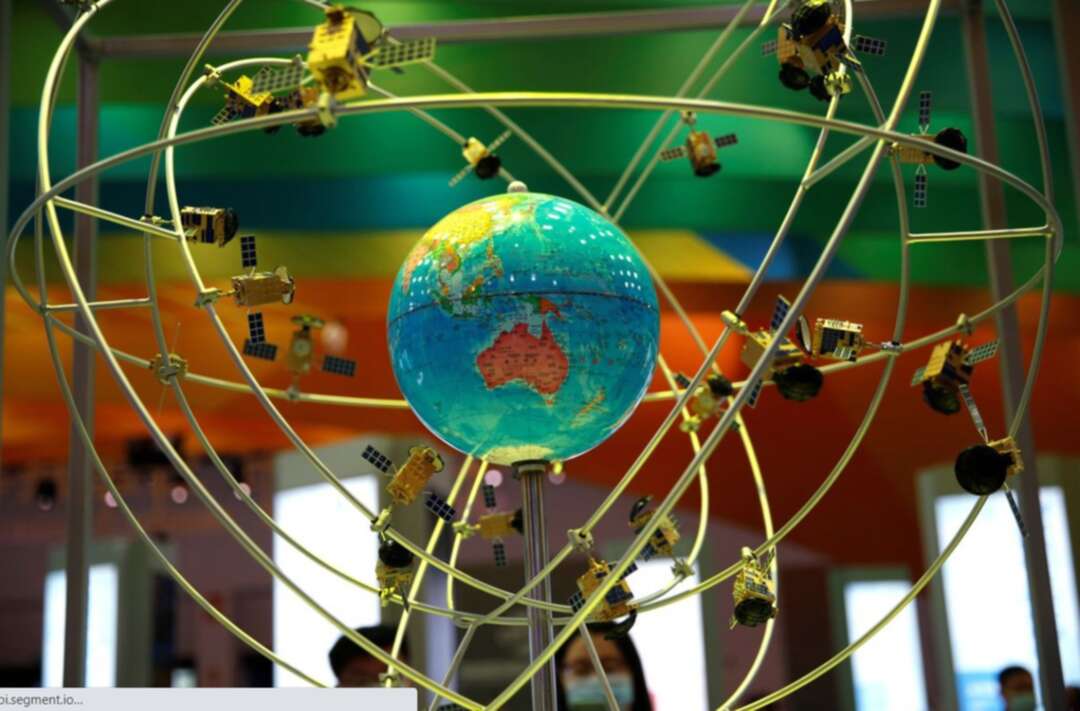-
Chinese navigation system Beidou will serve 156 billion dollar home market by 2025

A model of the BeiDou navigation satellites system is seen at the 2020 China International Fair for Trade in Services (CIFTIS), following the COVID-19 outbreak, in Beijing, China September 5, 2020. REUTERS/Tingshu Wang
Reuters
Beidou, China's answer to the U.S.-owned GPS navigation system, will back domestic products and related services worth 1 trillion yuan ($156.22 billion) by 2025, the official Xinhua news agency said on Wednesday.
The homegrown Chinese navigation network, completed in June 2020, looks to offer an alternative to the Global Positioning System (GPS) run by the U.S. Air Force, spurring further growth in the domestic satellite market.
China's satellite navigation industry has been growing at a rate of over 20% in value on average each year to exceed 400 billion yuan in 2020, Xinhua said, citing data presented at an industry conference in the southern province of Jiangxi.
Since last June, shares of some Chinese firms in the sector have chalked up big gains, with Beijing BDstar Navigation gaining 36% on the Shenzhen bourse.
China has also aggressively pushed for use of the Beidou system overseas, including in countries participating in its Belt and Road initiative, a global infrastructure development and trading network promoted by President Xi Jinping.
Related Beidou products have been exported to about 120 countries, serving more than 100 million users worldwide, the news agency said.
Last year, China said 28-nanometre chips that enable mobile devices to receive signals from the Beidou system were in mass production, and mass manufacturing of high-precision 22-nanometre positioning chips would soon begin.
Beidou products, such as chips and modules, are comparable to similar products in other navigation systems, Xinhua said.
(Reporting by Liangping Gao and Ryan Woo; Editing by Clarence Fernandez and Devika Syamnath)
Reuters, May 26, 20218:38 AM EEST
You May Also Like
Popular Posts
Caricature
BENEFIT Sponsors BuildHer...
- April 23, 2025
BENEFIT, the Kingdom’s innovator and leading company in Fintech and electronic financial transactions service, has sponsored the BuildHer CityHack 2025 Hackathon, a two-day event spearheaded by the College of Engineering and Technology at the Royal University for Women (RUW).
Aimed at secondary school students, the event brought together a distinguished group of academic professionals and technology experts to mentor and inspire young participants.
More than 100 high school students from across the Kingdom of Bahrain took part in the hackathon, which featured an intensive programme of training workshops and hands-on sessions. These activities were tailored to enhance participants’ critical thinking, collaborative problem-solving, and team-building capabilities, while also encouraging the development of practical and sustainable solutions to contemporary challenges using modern technological tools.
BENEFIT’s Chief Executive Mr. Abdulwahed AlJanahi, commented: “Our support for this educational hackathon reflects our long-term strategic vision to nurture the talents of emerging national youth and empower the next generation of accomplished female leaders in technology. By fostering creativity and innovation, we aim to contribute meaningfully to Bahrain’s comprehensive development goals and align with the aspirations outlined in the Kingdom’s Vision 2030—an ambition in which BENEFIT plays a central role.”
Professor Riyadh Yousif Hamzah, President of the Royal University for Women, commented: “This initiative reflects our commitment to advancing women in STEM fields. We're cultivating a generation of creative, solution-driven female leaders who will drive national development. Our partnership with BENEFIT exemplifies the powerful synergy between academia and private sector in supporting educational innovation.”
Hanan Abdulla Hasan, Senior Manager, PR & Communication at BENEFIT, said: “We are honoured to collaborate with RUW in supporting this remarkable technology-focused event. It highlights our commitment to social responsibility, and our ongoing efforts to enhance the digital and innovation capabilities of young Bahraini women and foster their ability to harness technological tools in the service of a smarter, more sustainable future.”
For his part, Dr. Humam ElAgha, Acting Dean of the College of Engineering and Technology at the University, said: “BuildHer CityHack 2025 embodies our hands-on approach to education. By tackling real-world problems through creative thinking and sustainable solutions, we're preparing women to thrive in the knowledge economy – a cornerstone of the University's vision.”
opinion
Report
ads
Newsletter
Subscribe to our mailing list to get the new updates!






















